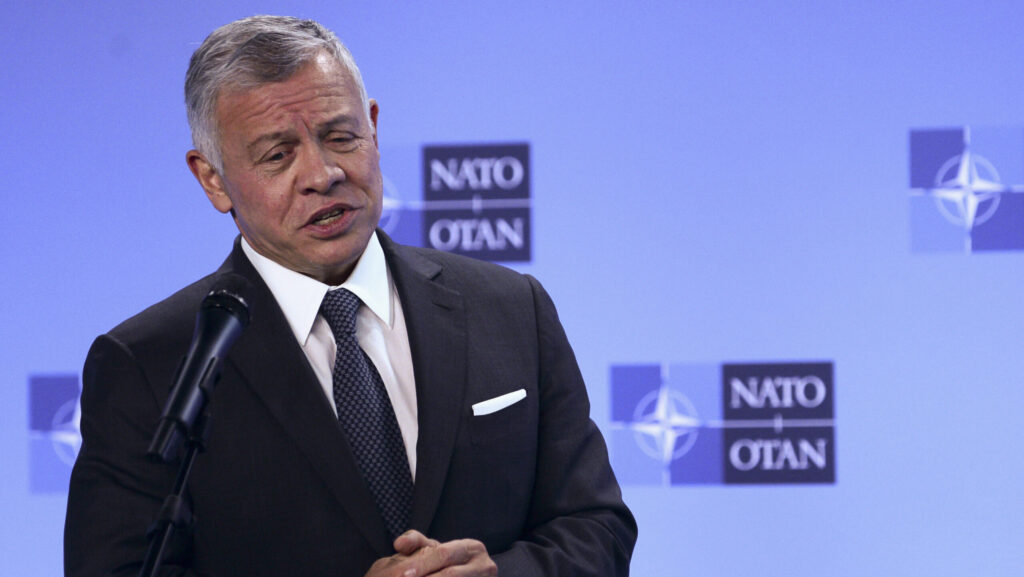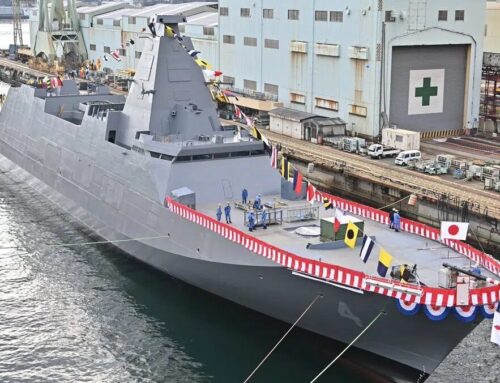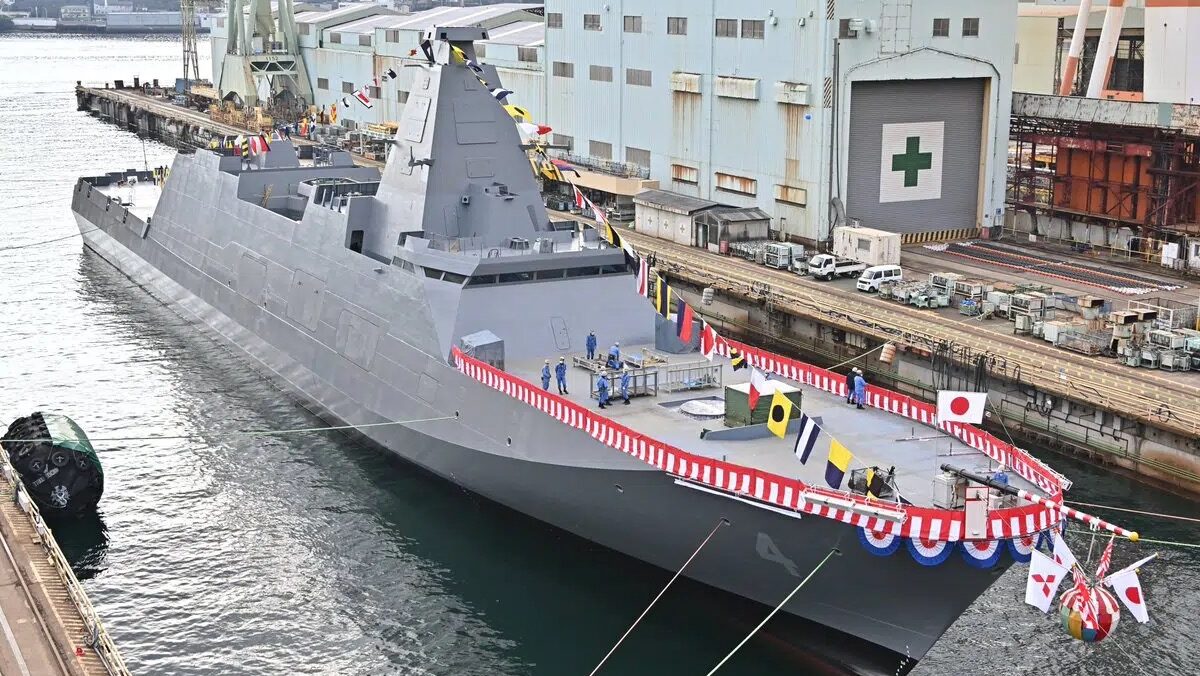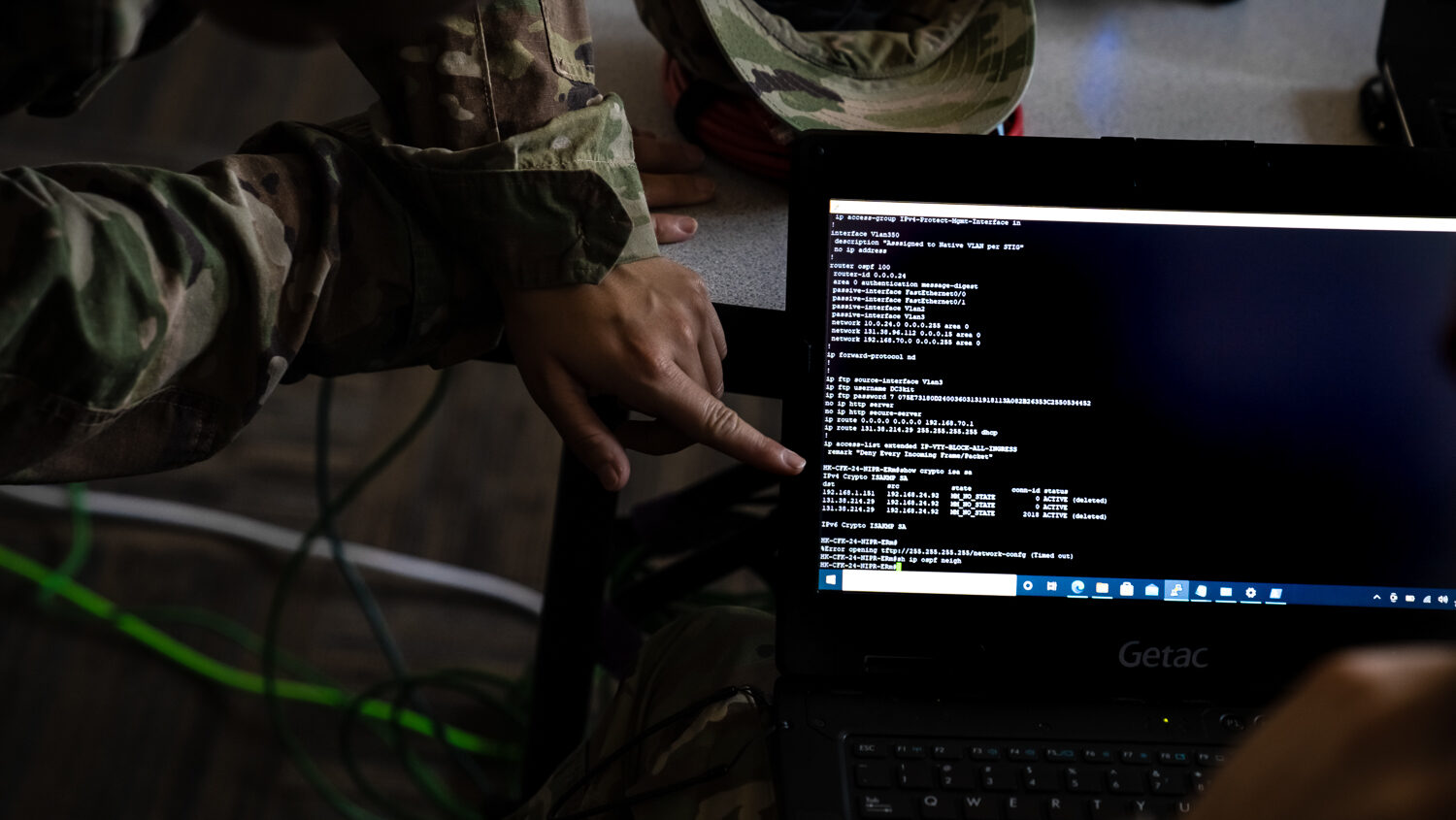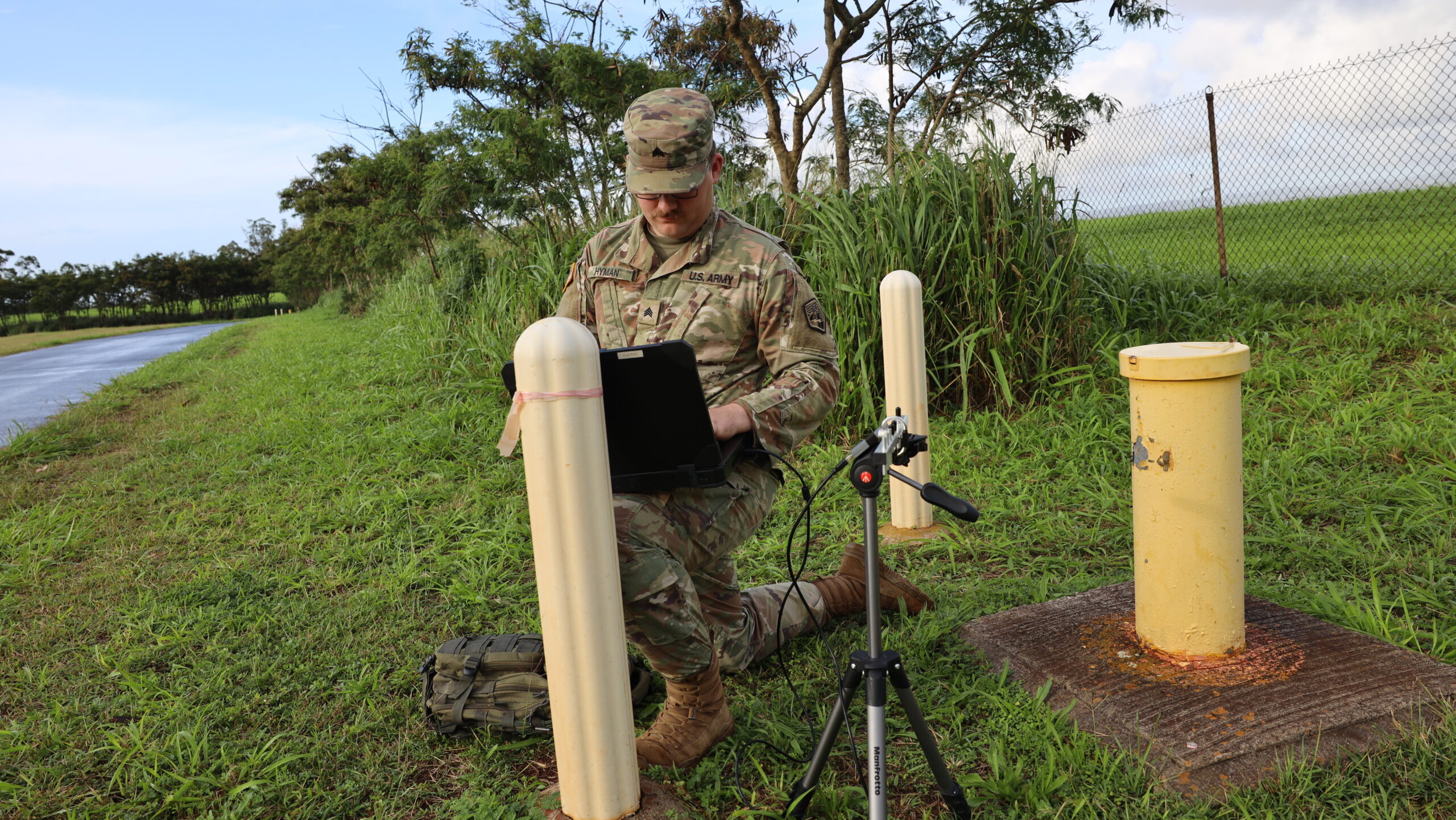Jordanian King Abdullah II ibn Al Hussein speaks during a joint news conference with NATO Secretary General Jens Stoltenberg (not seen) at the Alliance’s headquarters in Brussels, Belgium on May 05, 2021. (Photo by REUTERS / Johanna Geron / Pool/Anadolu Agency via Getty Images)
NATO CONFERENCE 2024 — NATO will establish its first ever liaison office in the Middle East region in Amman, Jordan, amid conflicts roaring in the region from the Red Sea to Gaza and Lebanon.
The decision, adopted by allies in attendance of this year’s NATO summit after being discussed last year, “marks a significant milestone in the deep strategic partnership between Jordan and the Alliance,” according to a Wednesday NATO announcement.
The liaison office will focus on reinforcing cooperation between NATO and Middle East and North Africa countries.
The decision “acknowledges Jordan’s significant role as a beacon of stability in both regional and global contexts, and as a long-time champion in fighting transnational threats, including terrorism and violent extremism,” said the statement.
While not a member of NATO itself, Jordan was the only Middle East country to help the US and allies in countering the barrage of 300 missiles and drones launched by Tehran in an unprecedented direct confrontation between Iran and Israel.
RELATED: At the NATO summit, a turbulent Middle East likely to stay in the background: Analysts
“One reason [that NATO didn’t choose a Gulf country or alliance member Turkey] is that Jordan played a very active role in the defense against Iran’s attack on Israel in April. Jordan likely sees deeper integration with the West via NATO as a strategic imperative, so this may have come as a push from Amman more so than Brussels,” Ryan Bohl, a senior MENA analyst at the RANE Network, told Breaking Defense.
He added that Gulf Arab states “aren’t quite ready to align themselves cleanly with NATO, as they’re trying to maintain a balancing act between themselves and Iran or emphasize strict neutrality. Jordan is more comfortable being openly aligned with the West, particularly after the events of April showcase the effectiveness of the defensive nature of that partnership.”
David Des Roches, associate professor at the Near East South Asia Center for Security Studies, sees the office as a mostly symbolic action recognizing Jordan as “a key partner in the region to NATO nations, most recently in defending its sovereignty from a massive Iranian missile and drone overflight.”
He added that few countries in the region “are closer to NATO interests, values, and capabilities than Jordan, and this seems to be a recognition of that.”
NATO’s office in Amman will also act as representative office bringing the Council and Jordan closer together.
“It will enable regular engagement between NATO and the Jordanian authorities, thus contributing to a better shared understanding of the national and regional context, and to the development and implementation of partnership programmes and activities, including, among others, conferences, courses, and training programmes in areas like strategic analysis, civil emergency planning and preparedness, crisis management, public diplomacy, cyber security, and climate change,” the NATO statement said.


